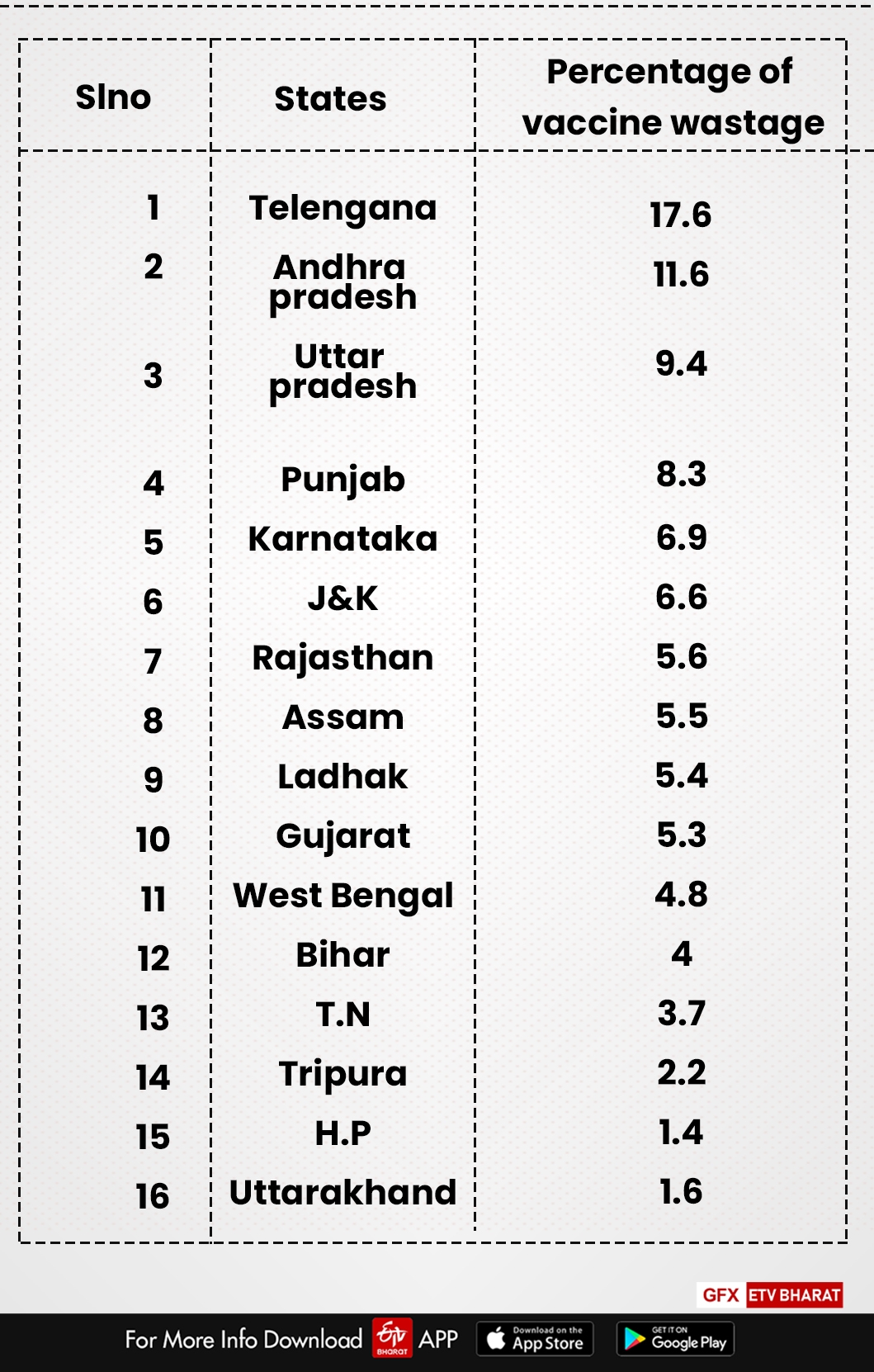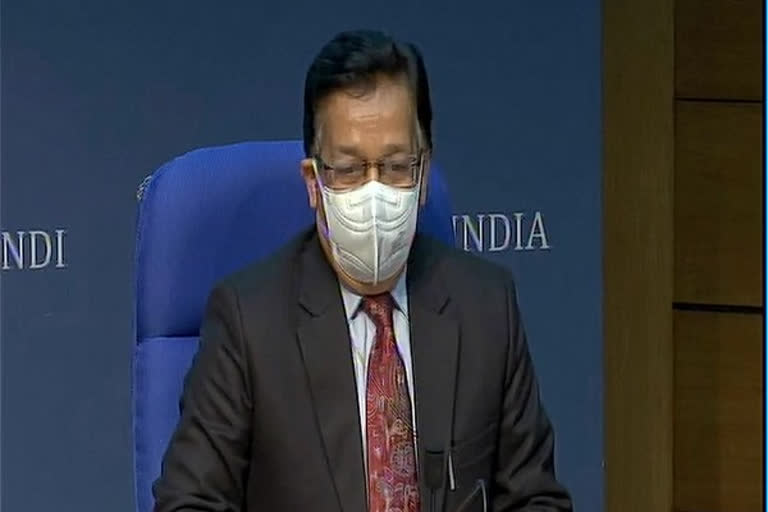New Delhi: The average of COVID-19 vaccine wastage in India is 6.5 per cent, with Telangana and Andhra Pradesh recording 17.6 and 11.6 per cent wastage respectively, the Centre said on Wednesday as it called for optimal utilisation of the jabs.
Addressing a press conference, Health Secretary Rajesh Bhushan said that 3.51 crore vaccine doses have been administered till now in the country, which includes 1.38 crore beneficiaries aged 45-60 years with specific co-morbidities and those above 60 years who have been given the first dose.

Read: India consistently calling upon Sri Lanka to fulfil aspirations of Tamil people
On March 15, 8.34 million COVID-19 vaccine doses were administered worldwide, of which India alone administered 36 per cent of doses, he said.
Bhushan said COVID-19 vaccine wastage in five states -- Telangana, Andhra Pradesh, Uttar Pradesh, Karnataka and Jammu and Kashmir is higher than 6.5 per cent, which is the national average.
Read: Delhi's pollution curbed due to AAP govt's efforts: Minister
"The message we have shared with states is that vaccines are invaluable commodities. They are public health goods and therefore vaccines have to be optimally utilised. Vaccine wastage has to be drastically reduced. Any reduction in wastage means that you end up inoculating more people and therefore the chances of disrupting the chain of infection grow that much more," he said.
WHO(World health oraganisation) define vaccine wastage
There are two types of vaccine wastage close and open vial wastage.
“Closed vial wastage” (which occurs before vaccine vials are opened) and “open vial wastage” (occurring after vials have been opened). Closed vial wastage occurs mostly because of errors in storage and transportation, like when vials get too warm or too cold. Open vial wastage occurs mainly because of immunisation workers’ practices, or because unused doses from multi-dose vials are thrown away.
In India’s case, the reason for vaccine wastage is not inefficient transportation or lack of cold storage but the number of doses within a single vial. Once a vial is opened, the doses have to be administered within a span of four hours.
There are around 20 doses per vial for Covaxin and 10 doses per vial for Covishield. Both of which can present an issue if there is a low turnout on a particular day.
WHO Point of view to prevent vaccine wastage
Vaccine wastage is not unusual it’s expected. In a 2005 paper, the World Health Organization (WHO) reported vaccine wastage at over 50% around the world. Some waste is unavoidable. But a good understanding for where waste occurs in the vaccine supply chain and targeted action at crucial points of that chain can help to minimise it.
Read: Govt to consider suggestion on giving separate facility to transgenders in prisons
PTI




